When preparing for my trip to the Middle Eastern country of Jordan, I had a few worries. First, I was concerned about Jordan’s politically unstable neighbors – Syria, Egypt, Iraq and Palestine. Then I worried about being female in a place where many women cover everything but their eyes. I put a lot of thought and effort into assembling my modest wardrobe, and wondered how to make a head scarf stay in place. And just before I left, I started obsessing over whether locals would try to coerce me into eating lamb. Should I pack an entire suitcase of vegan protein bars? Would I even be allowed to bring food into Jordan?
All my fears turned out to be unwarranted. Nobody harassed me for being American, female, or meat-free. Everywhere I was welcomed with kindness and tolerance. It was easy to be vegan in Jordan.
What to Eat
In my pre-trip research, I couldn’t find an Arabic word for vegan. So I went with the phrase “Ana nabatiya,” the feminine way to say “I’m vegetarian.” Men would say, “Ana nabati.” My first day in Jordan, I told my driver I was vegetarian. “We have 100 salads in Jordan,” he reassured me. I asked him if people would be offended if I didn’t eat meat and he looked at me like I was a little crazy to think locals would be emotionally affected by my choices.
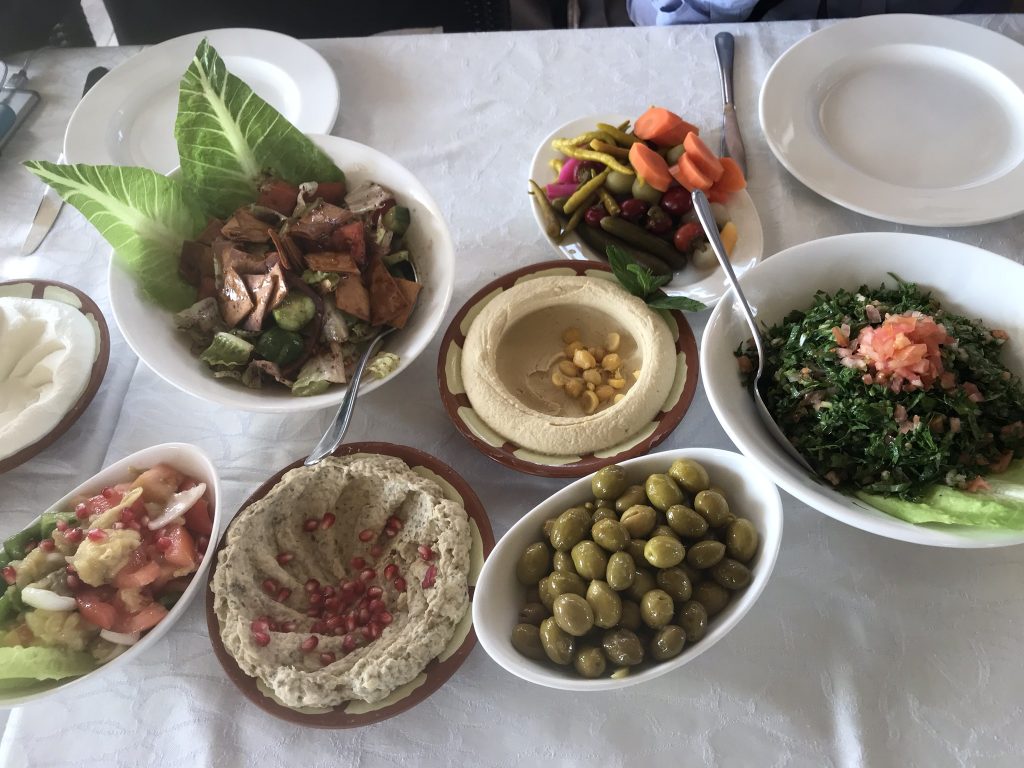
I never saw the full 100 salads of Jordan. But every meal started with a good array. My group ate at a lot of buffets, which all had a huge salad section. Tomatoes and cucumbers were the most widespread salad ingredients, but red cabbage, carrots and eggplants were also common. Because of the language and cultural barrier, I didn’t ask as many ingredient questions as I would at home. I mostly stuck to uncooked salads, hummus, baba ganouj and loads of pita bread. At breakfast, the buffets often included falafel balls and the tahini-based sweet halvah. I ate a lot of fatoush salad – salad greens with toasted pita chips. Fruit was also easy to come by.
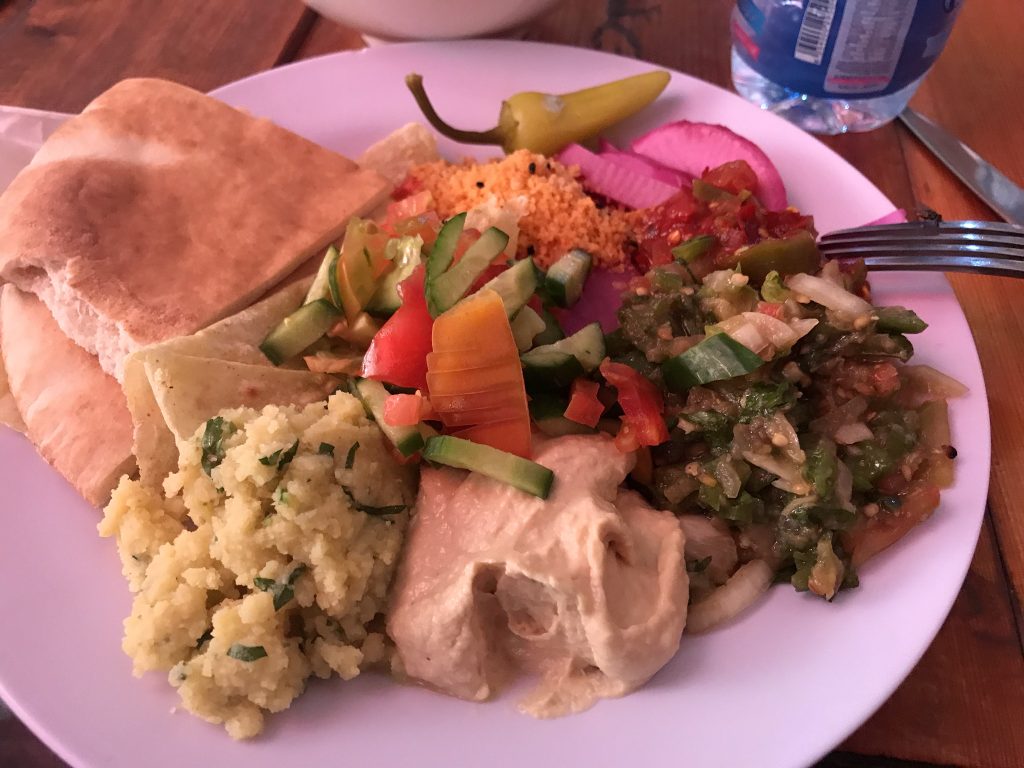
What Not to Eat
My second night in Jordan, I got a little pushy about what, exactly, was in the lentil soup. The server thought it was vegetarian but finally agreed to ask the cook. He returned with those two dreaded words: chicken stock. From then on, I suspected critter juice in soups and cooked vegetables, which is why I stuck to a mostly salad/bread/hummus diet for the rest of my trip.
As far as vegan versus vegetarian, the dairy dishes seemed pretty obvious, as they were white. It was easy to avoid a large bowl of yogurt.
Stand out Experiences
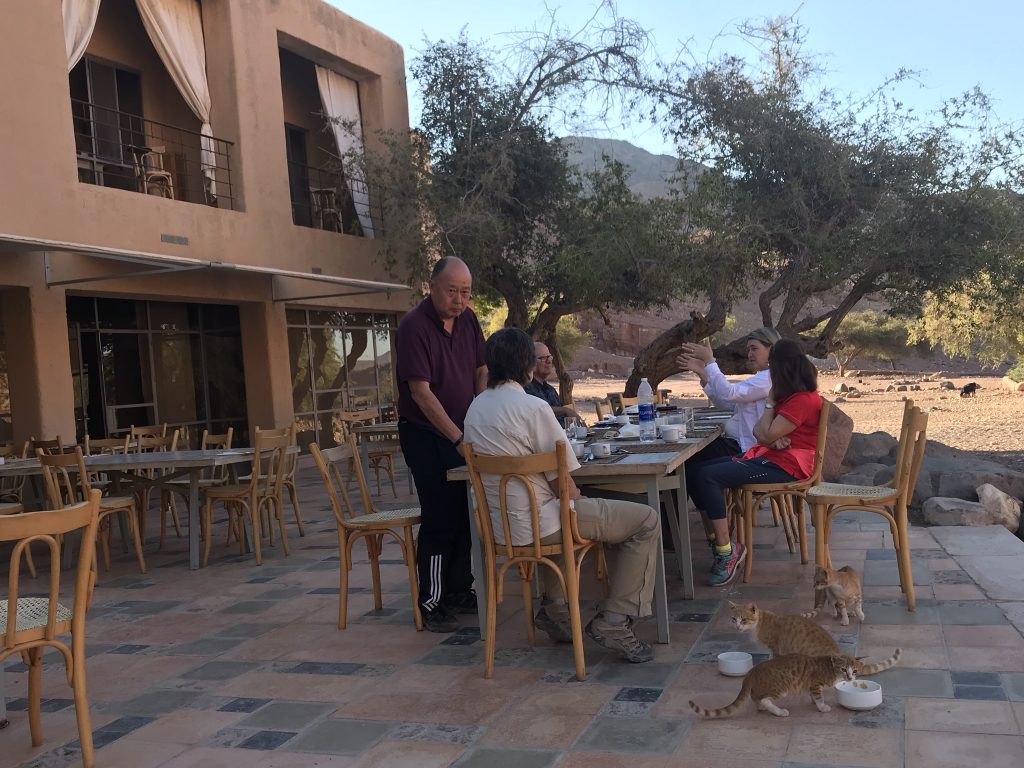
I was excited about spending a night at the Feynan Ecolodge, but I was absolutely floored when I got there for dinner and learned that it’s vegetarian. I had no idea that such a place existed in Jordan. The ecolodge is off the grid in a Bedouin area south of the Dead Sea. I arrived at night to find the place lit my luminarios and everybody up on the roof, stargazing. Votive candles in wall sconces lit my room. The next morning, a young Bedouin man took my group to have coffee with a local family in their nomadic tent. We watched a man prepare green coffee beans over a fire pit then prepare a strong, sweet brew. His wife cooked flat bread in another fire, burying it under ashes. It was the sort of unforgettable glimpse into a different culture that warrants 18 hours on an airplane.
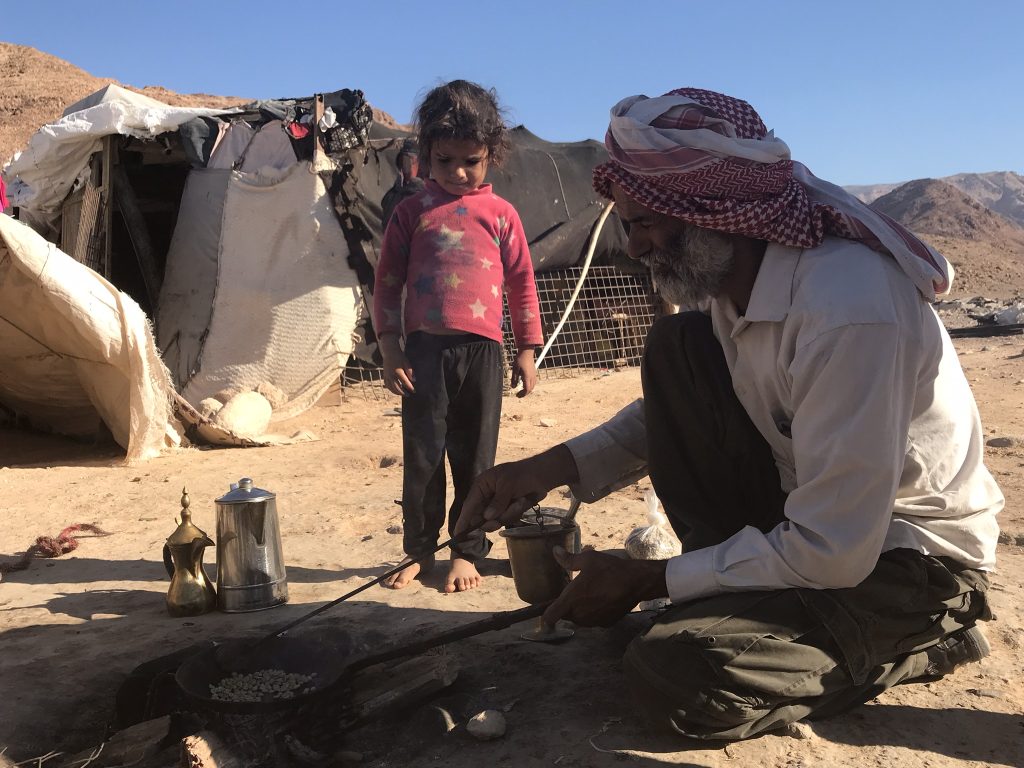
Another night we stayed in Umm Qais, near the Syrian border. There we experienced the olive harvest through a sustainable tourism organization called Baraka Destinations. We went out to an olive grove, where we watched people harvesting the trees and got to pick a few ourselves. Then we visited a small factory where people press olives into oil. I attended a cooking class in a private home where we made grass al Eid, a delicious fennel and sesame-flavored flat bread traditionally made at harvest time and laden with about a bucket of olive oil.
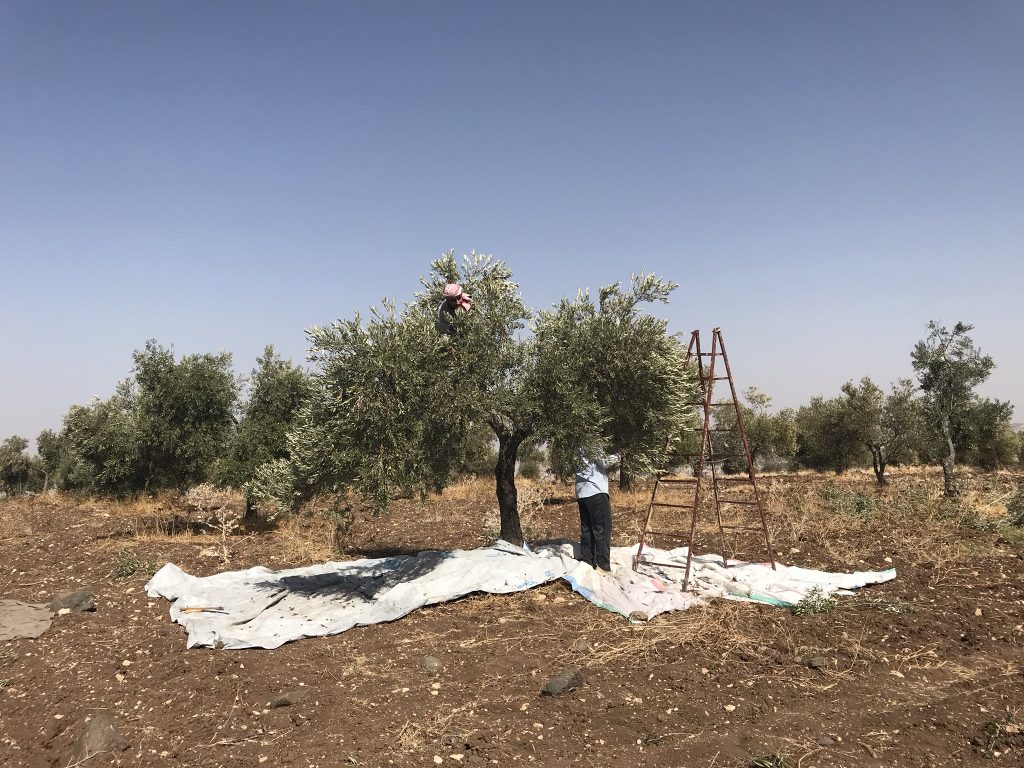
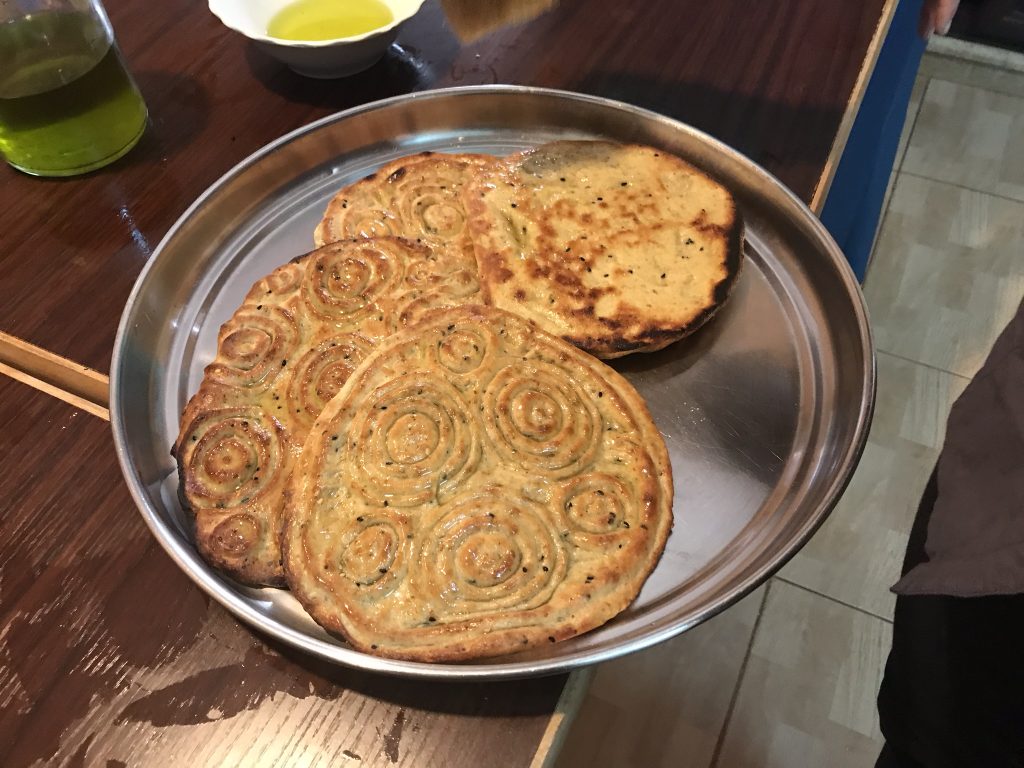
Veg Souvenirs
I always like to bring food souvenirs back to people, since almost everybody I know has enough material goods cluttering their houses already. Jordan was a fun place to shop for foodstuffs like olives, Arabic coffee, sage tea and spices. The spice shops would alarm germophobes, since spices are displayed in open bowls and passers-by are encouraged to grab a pinch to taste. I wasn’t sure whether the TSA would allow my spices back into the US, but the only things they confiscated were a banana and an orange I’d meant to eat on the plane.
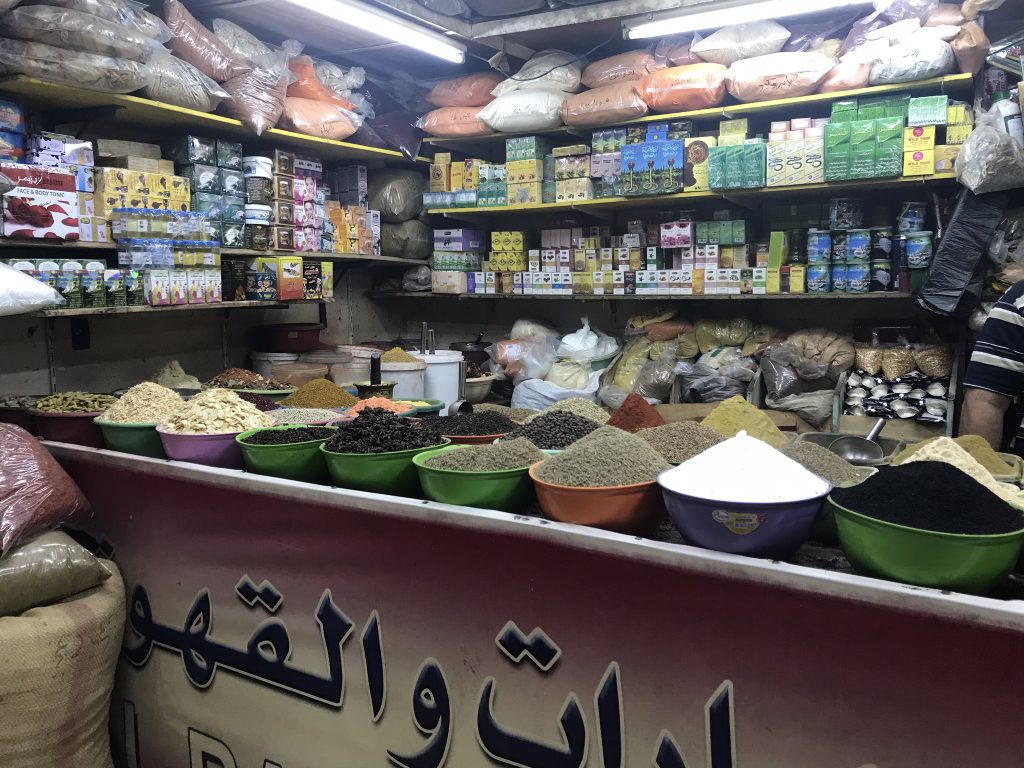
Treatment of Animals
I talked to the Kaiser Permanente travel clinic about recommended shots before I visited Jordan. “Will you be handling animals?” they asked. I said no. But who was I fooling? I’m a total sucker for strays, and have seldom met a cat I didn’t meow at and attempt to pet. Fortunately, the cats of Jordan were friendly and none infected me with rabies.
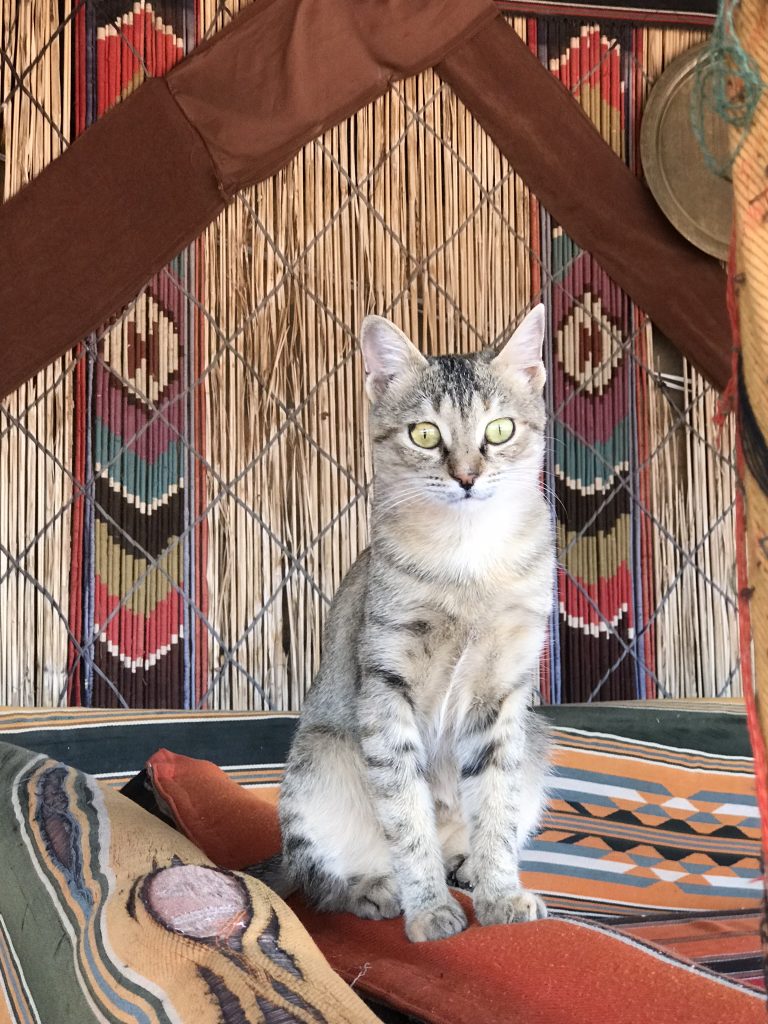
Muslims generally favor cats over dogs. As one local pointed out, dogs are dirty while cats are constantly cleaning themselves. Also in cats’ favor, the prophet Mohamed was a cat lover. A famous story tells of how he once cut off his sleeve rather than disturb a sleeping cat.
I was surprised to find that even five-star hotels have resident cat populations stalking outdoor restaurant tables hoping for handouts. Waiters gently shoo them away, but the felines slink back and locals and tourists slip them bites of food.
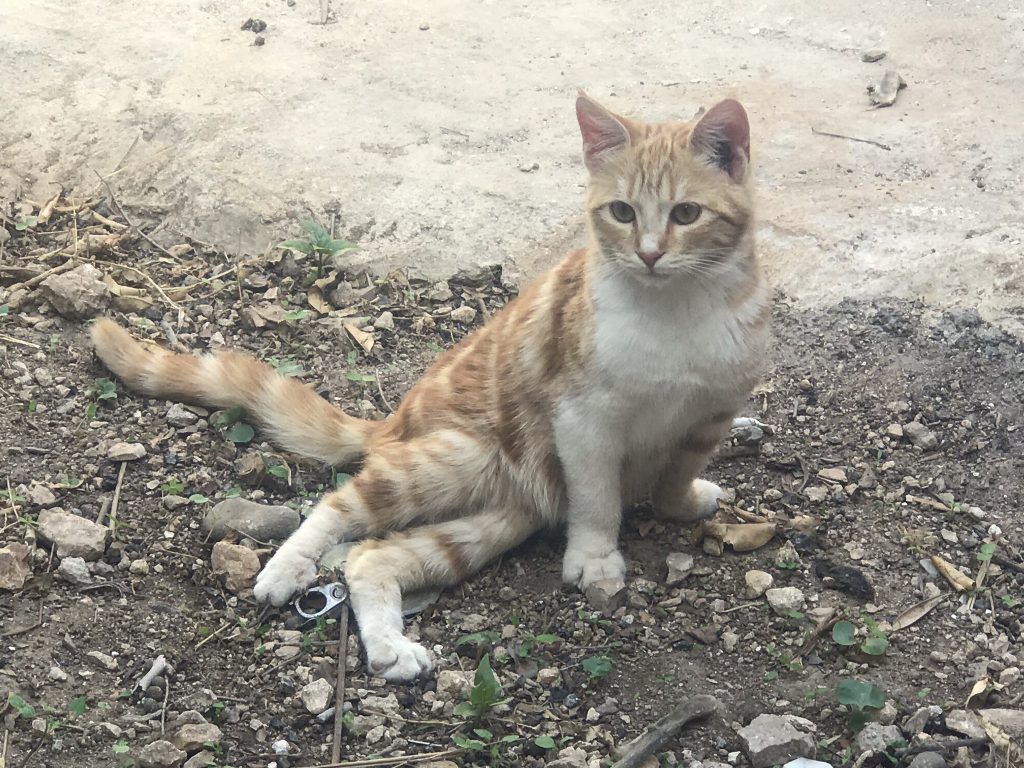
Dogs are important for security, but aren’t as loved. Most stay away from people, or wander around with their tails tucked between their legs as though afraid of being kicked. I pet a couple of puppies, but older dogs are warier of people.
Camels are a traditional form of transportation in Jordan, and now important to tourism. Camel rides are a popular attraction. Not having been around camels very much, I was curious about their lives. As far as I could tell, they were clean, healthy and well-tended. Camels cost a lot of money – upwards of $2,500 – so I’m sure this helps. But I witnessed what seemed to be affection between camels and their people, especially a 10 year-old Bedouin boy hugging and kissing his camel. The camels seem to have strong bonds with each other, resting their heads on other camels like pillows, or helping another camel scratch an itch.

Go to Jordan
Jordan has incredible archeological sites, desert landscapes, Bible history and even diving and snorkeling on its Red Sea coastline. I’m so glad I didn’t let my fear keep me from visiting, and I would encourage other people to also visit. With its 100 salads, Jordan surprised me by being one of the easiest countries I’ve navigated as a veg person.
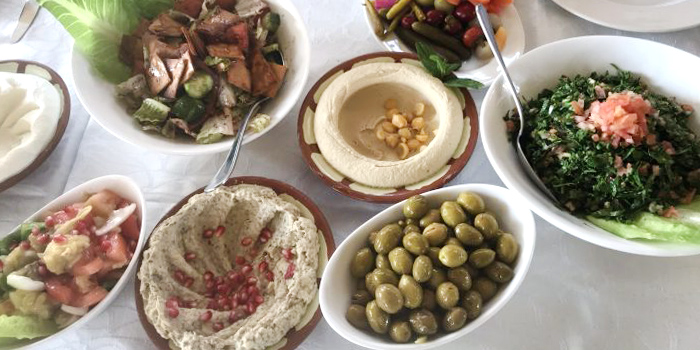
Hi Teresa! What a great resource of vegan travelers to Jordan, we will be sure to share with our guests!